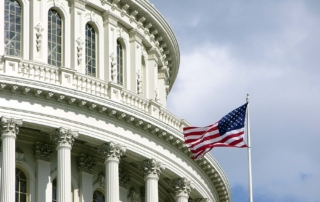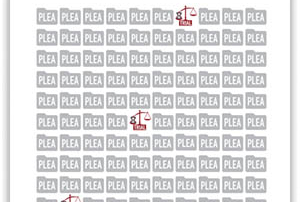Nationwide, 96% of federal criminal cases are resolved by entering a plea agreement. Therefore, plea and sentencing mitigation are extremely important as it is the most used strategy in the federal criminal justice system to limit and reduce a defendant’s punishment and collateral consequences such as forfeiture, restitution and fines when the evidence against the defendant precludes a trial.
This process typically involves presenting information and evidence that portray the defendant in the most favorable light, emphasizing factors that lessen their culpability or encourage the judge to impose a less severe sentence.
Federal Plea Bargaining
Based on the statistics, defense attorneys routinely engage in negotiations with the prosecution to reach a plea agreement. A plea bargain is an agreement between the defendant and the prosecution where the defendant agrees to plead guilty to a lesser charge or to receive a lighter sentence in exchange for waiving the right to a trial.
- Negotiation: The defense and prosecution negotiate the terms of the plea deal. This can involve agreeing to a reduced charge, a specific sentence, or other terms.
- Plea Agreement: Once an agreement is reached, it is formalized in a plea agreement document, which the defendant must sign.
- Court Approval: The agreement is then presented to the judge. The judge will review the terms and ensure that the plea is made voluntarily and with an understanding of the consequences. The judge may accept or reject the plea agreement.
A plea bargain can offer a definite outcome, avoiding the uncertainty of a trial and potential for harsher penalties.
Sentencing Mitigation
Sentencing mitigation involves presenting evidence and arguments to the court to reduce the severity of a defendant’s sentence. This can occur after a conviction, whether following a plea or a trial.
Mitigating factors may include:
- Personal History: Information about the defendant’s background, such as their family situation, education, employment history, and medical or psychological histories can be presented to show that they are a person of good character or has factors that warrant special consideration.
- Circumstances of the Offense: Factors like the defendant’s level of involvement, intent, and whether the crime was committed under duress or in a moment of extreme emotional distress.
- Remorse and Rehabilitation: Demonstrating that the defendant shows genuine remorse for their actions and has taken steps towards rehabilitation, such as employment, counseling or community service.
The court orders a pre-sentence investigation report that includes details of the offense, the defendant’s personal background, medical conditions, finances and acceptance of responsibility.
At the sentencing hearing, an effective defense must present evidence and arguments for mitigation, aiming to persuade the judge to impose a lighter sentence than what is typically prescribed.
Effective mitigation can result in a lighter sentence, such as a reduced prison term, probation instead of incarceration, or other leniencies.
Both plea bargaining and sentencing mitigation involve strategic legal maneuvering to achieve a more favorable outcome for the defendant. While plea bargaining aims to resolve the case before trial, sentencing mitigation focuses on reducing the sentence after a conviction.
Updates on federal Plea and sentencing mitigation are listed below.








